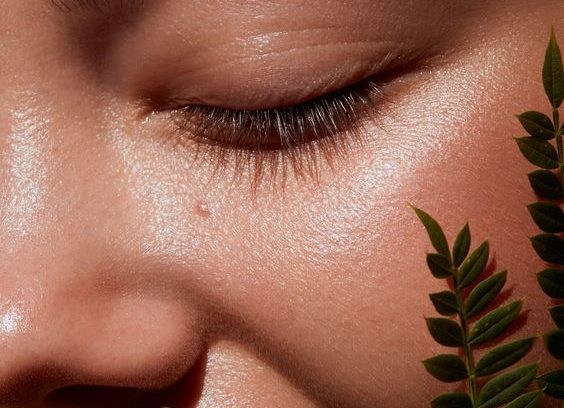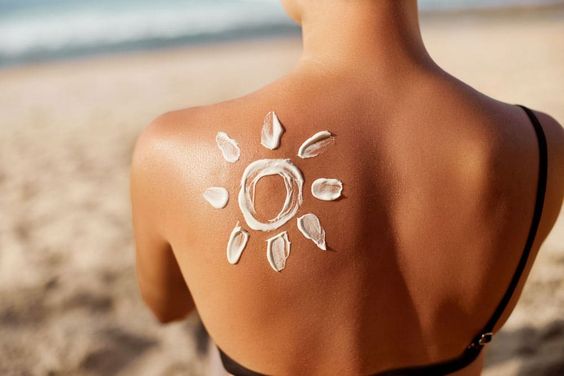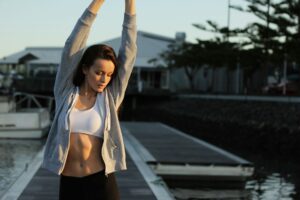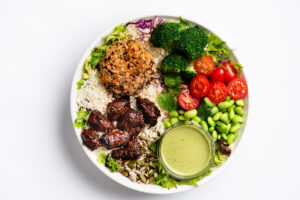When asked what was the one thing she would bring to a deserted island, a famous Korean celebrity replied, “sunscreen”. Do you apply sunscreen every morning? Or do you see this habit as a hassle and only use sunscreen when you’re doing intense outdoor activities? Or do you not use it at all? Even though it may seem like a small change, if it becomes a habit, you will be able to protect your skin and see lasting benefits.
The Difference Between Sunblock and Sunscreen

Sunscreen is a chemical defence. It penetrates the skin and absorbs the UV rays before they reach and damage the dermal layers. Some sunscreens contain avobenzone, oxybenzone, and para-aminobenzoic acid, which are ingredients used to absorb the sun’s rays.
Sunblock is a physical way to defend against ultraviolet (UV) rays. It sits on top of the skin and acts as a barrier. It is often opaque and noticeable when applied to the skin. For people with sensitive skin, sunblocks may be better as sunscreen contains chemicals that might cause irritation or an allergic reaction.
Benefits of wearing sunscreen daily

We all know that sunscreen protects our skin from the sun, but how does it benefit our body in greater detail? Here are 4 reasons why applying sunscreen every day, even when you’re working indoors on a cloudy or rainy day, is good for us.
1. Prevent premature aging
Although we need to get our daily dose of sunshine, too much of it can lead to skin damage, including fine lines, wrinkles and sunspots. Your skin begins to feel dry and leathery, which damages your overall complexion. This is because UV exposure breaks down the supporting structures of the skin, like collagen and elastin. Sunscreen is said to be the ultimate anti-aging product. The earlier in your lifetime you start wearing sunscreen, the sooner you can prevent UV damage, which is perhaps “the number one cause of all skin problems“.
2. Maintain a more even skin tone
UV damage causes skin discoloration or hyperpigmentation. This leads to what is known as an “uneven skin tone”, where too much melanin can make your skin look patchy and spotty. Using sunscreen every day prevents immediate redness and peeling from sunburn, especially if you are doing outdoor activities for a continuous period of time.
3. Reduce the risk of developing skin cancer
Without a layer of sunscreen, your skin is exposed to harmful UV rays, even if you are working indoors. While some have expressed concern about the harmful ingredients found in sunscreen and argue that it causes cancer, a study showed that sunscreen helped prevent cell damage in animal models and that there is “highest-quality evidence” suggesting that sunscreens do prevent skin cancer.
4. Protect the immune system
Scientists have found that overexposure to UV radiation may suppress proper functioning of the body’s immune system and the skin’s natural defenses. Studies have shown that exposure to environmental levels of UV radiation alters the activity and distribution of some of the cells responsible for triggering immune response in humans. This may enhance the risk of viral or bacterial infections.
The best way to wear sunscreen

In hot and humid Singapore, you might not want to apply a thick layer of sun protection every few hours. You may be scared of getting oily skin or having an allergic reaction to sunscreen. That’s why it’s important to do your research before picking out a sunscreen (or sunblock) that suits you. Here are some useful tips on the application of sunscreen:
- Apple sunscreen at least 30 minutes before going outdoors to give time for the chemicals to interact with your skin and create the protective barrier.
- Sunscreen needs to be reapplied approximately every two hours because the effect of chemical sunscreen wanes after you apply it, and most sunscreens tend to be sweated off.
- To protect your face, neck, arms and legs, you’ll need about one ounce of sunscreen. It should be enough to cover the palm of your hand- don’t skimp on applying sunscreen. For once, a little more couldn’t hurt!
- Protect your lips with a lip balm with at least SPF 15.
Remember that even the best sunscreen may not be adequate without taking a few more lifestyle precautions.

- Take special care to use UV-protective gear like hats, umbrellas and sunglasses.
- Water and sand are good reflectors of UV rays so it’s essential to wear sunscreen at the beach, even though you may want to get a tan.
- Seek shade, especially during the hours from 10 am to 4 pm where UV rays are at their strongest.
- Small UV lamps are used at nail salons to dry gel manicures. They give off UV rays so to be safe, apply sunscreen to the hands before using one of these lamps.




